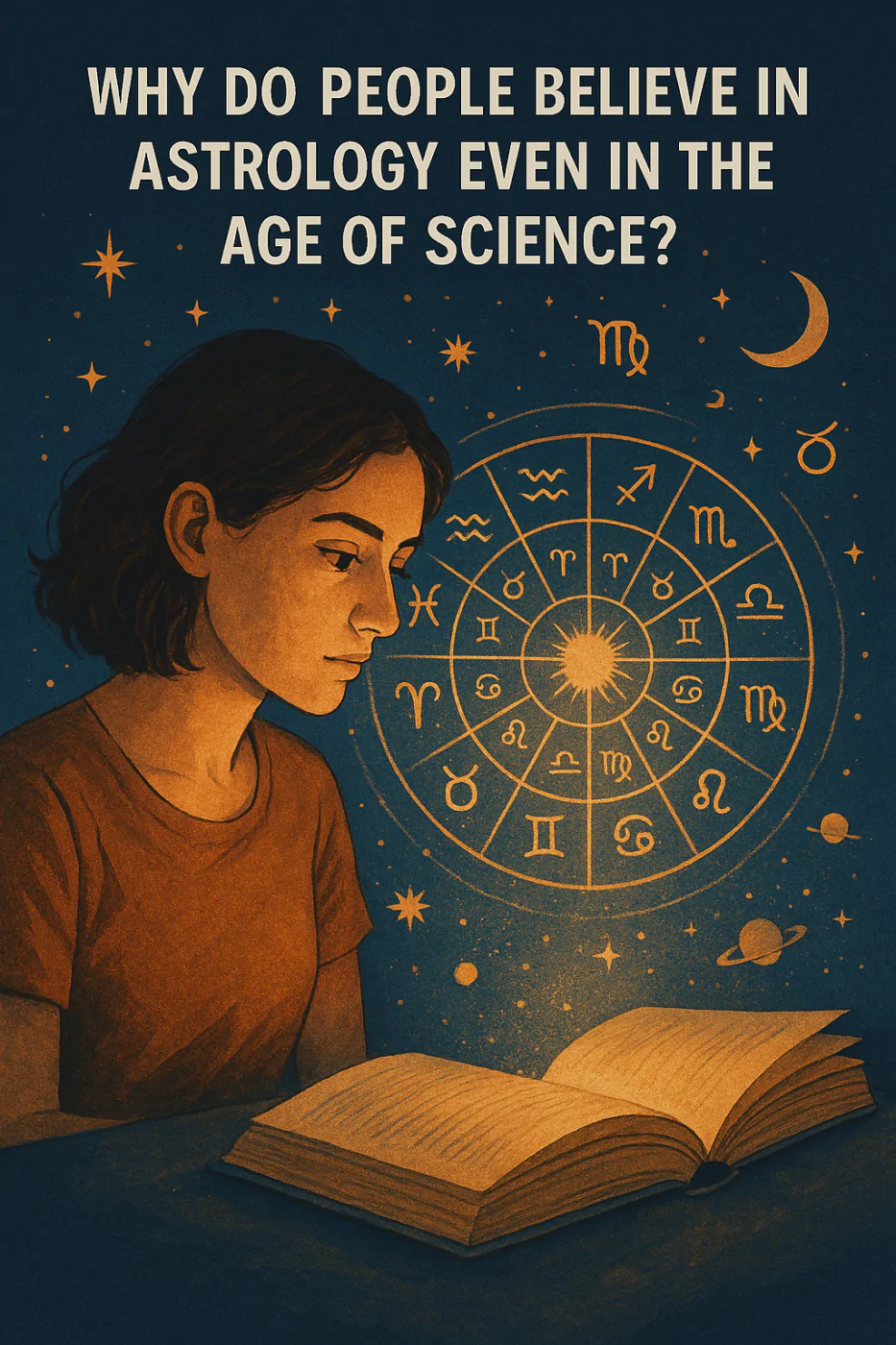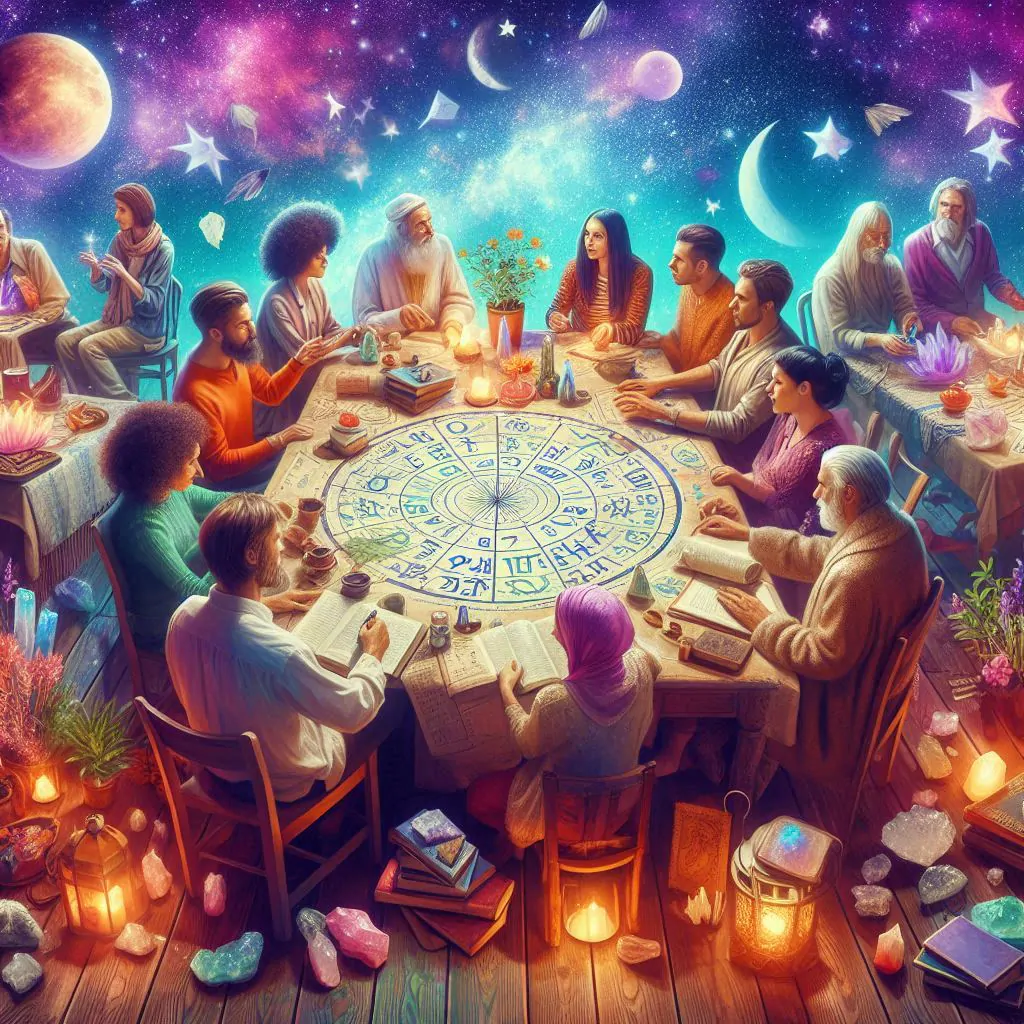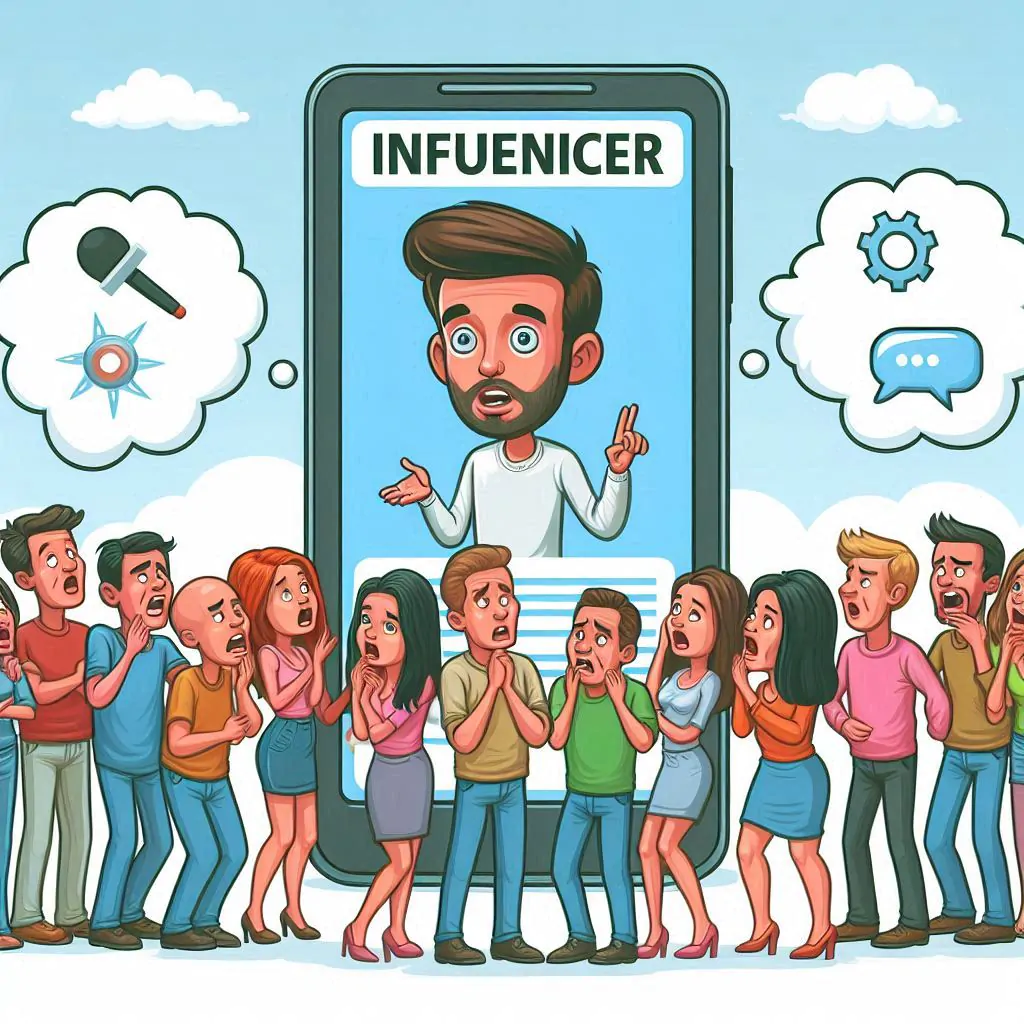Why Do People Believe in Astrology Even in the Age of Science?

In an era dominated by scientific advancements and technological marvels, you might wonder why astrology continues to captivate millions worldwide. Despite the wealth of empirical knowledge at your fingertips, you may find yourself drawn to horoscopes and zodiac signs. This enduring fascination with celestial influences on human affairs presents a compelling paradox. As you navigate the complexities of modern life, astrology offers a tantalizing blend of ancient wisdom and personalized insight. This article explores the psychological, cultural, and societal factors that contribute to astrology’s persistent appeal, even as scientific understanding continues to expand our view of the cosmos.
Personalized Meaning in a Complex World
In an era dominated by scientific advancement, astrology continues to captivate millions worldwide. This ancient practice offers a sense of order and personal significance in an increasingly chaotic and impersonal world. By providing a framework to understand oneself and others, astrology creates a comforting narrative that can feel more relatable than cold, hard scientific facts.
Astrology serves as a tool for introspection, encouraging individuals to examine their behaviors, relationships, and life patterns. Whether you believe in celestial influences or not, the act of reflecting on your personality traits and life experiences can lead to valuable insights. This self-awareness can be empowering, helping people navigate personal and professional challenges with greater confidence.
In our digitally connected yet often isolating modern society, astrology provides a shared language and community. Social media platforms have amplified this effect, allowing people to connect over their zodiac signs, discuss astrological events, and share personalized horoscopes. This sense of belonging to a larger cosmic narrative can be particularly appealing in times of uncertainty or stress.
Astrology offers a semblance of control and foresight in a world where the future often feels unpredictable. While scientific forecasting may seem abstract or impersonal, astrological predictions feel tailored to the individual. This personalized approach to understanding future possibilities can provide comfort and a sense of preparedness, even if the predictions are vague or generalized.
By tapping into these deeply human needs for meaning, self-understanding, community, and predictability, astrology maintains its allure even as science continues to advance our understanding of the universe.
The Psychological Reasons People Believe in Astrology
In an unpredictable world, astrology offers a sense of order and meaning. You might turn to the stars for guidance when faced with uncertainty or stress. Astrology provides a framework to understand your life’s events, making you feel more in control. This perceived control can be comforting, even if it’s not scientifically grounded.
Your brain is wired to seek patterns and connections, sometimes even where they don’t exist. This tendency, known as confirmation bias, leads you to remember horoscope predictions that come true while forgetting those that don’t. Additionally, reading your horoscope might subconsciously influence your behavior, creating a self-fulfilling prophecy.
Astrology offers a way to understand and express your personality. You might identify strongly with your zodiac sign, using it as a shorthand to describe yourself or relate to others. This sense of identity can foster a feeling of belonging to a larger cosmic order, satisfying the human need for connection and community.
During difficult times, astrology can serve as a coping mechanism. It provides a language to discuss emotions and experiences that might otherwise be hard to articulate. You might find comfort in the idea that your struggles are part of a larger celestial plan, rather than random misfortune.
Horoscopes often use vague, general statements that could apply to anyone. This phenomenon, known as the Barnum Effect, makes you feel like the description is uniquely tailored to you. The perceived accuracy of these general statements reinforces your belief in astrology’s validity, even though the same description could apply to countless others.
The Rise of Astrology in the Digital Era
In recent years, astrology has experienced a significant resurgence, particularly among younger generations. This renewed interest can be largely attributed to the pervasive influence of social media platforms. Instagram, TikTok, Facebook and X have become virtual cosmic hubs, where astrological content proliferates at an unprecedented rate. You’ll find daily horoscopes, zodiac memes, and celestial-themed merchandise flooding your feeds, making astrology more accessible and engaging than ever before.
The digital era has ushered in an age of personalization, and astrology fits perfectly into this paradigm. Astrology apps and websites now offer tailored readings based on your exact birth time and location, providing a sense of individualized guidance. This personalized approach resonates strongly with millennials and Gen Z, who often seek meaning and direction in an increasingly complex world.
Online platforms have facilitated the formation of astrological communities, where enthusiasts can connect, share experiences, and discuss cosmic events. These digital gatherings provide a sense of belonging and validation, particularly for those who feel disconnected or uncertain in other aspects of their lives. You’ll find that these communities often transcend geographical boundaries, creating a global network of like-minded individuals united by their interest in the stars.
While astrology itself is an ancient practice, its integration with modern technology has breathed new life into the field. Advanced algorithms and big data analytics are now being applied to astrological calculations, lending a veneer of scientific credibility to the practice. This fusion of old and new appeals to those who seek a balance between tradition and innovation in their spiritual pursuits.
Astrology vs. Science: Conflicting Worldviews
At its core, the debate between astrology and science represents a clash of worldviews. Science relies on empirical evidence, rigorous testing, and falsifiable hypotheses. Astrology, on the other hand, is based on ancient traditions, symbolic interpretations, and personal experiences. This fundamental difference in approach creates a significant divide between the two systems of thought.
Scientists argue that astrology lacks a plausible mechanism to explain how celestial bodies could influence human personalities and events. They point to numerous studies that have failed to find any correlation between astrological predictions and real-world outcomes. Critics also highlight the vague nature of many astrological statements, which can often be interpreted to fit a wide range of situations.
Despite scientific skepticism, astrology continues to resonate with many people. Its appeal lies in its ability to provide a sense of order and meaning in a chaotic world. Astrology offers personalized insights and a framework for understanding oneself and others. This psychological comfort, combined with the human tendency to seek patterns and meaning, contributes to astrology’s enduring popularity.
While the scientific community largely dismisses astrology, some argue for a more nuanced approach. They suggest that astrology could be viewed as a symbolic language or a tool for self-reflection, rather than a literal predictor of events. This perspective allows for the coexistence of scientific understanding and astrological practice, albeit in different spheres of human experience.
The Confirmation Bias Behind Astrological Beliefs
When it comes to astrology, confirmation bias plays a significant role in reinforcing beliefs. You might find yourself paying more attention to horoscope predictions that seem accurate while disregarding those that don’t align with your experiences. This selective attention creates a false sense of accuracy, making it appear as though astrological forecasts are more reliable than they actually are.
The Barnum Effect
Another psychological factor at play is the Barnum effect, named after the famous showman P.T. Barnum. This phenomenon occurs when you accept vague, general personality descriptions as uniquely applicable to yourself. Horoscopes often employ this technique, using broad statements that could apply to almost anyone. You might read your horoscope and think, “That’s so me!” without realizing that the same description could fit countless others.
Once you’ve invested time and emotional energy into astrological beliefs, you may experience cognitive dissonance when faced with contradictory evidence. To resolve this internal conflict, you might:
- Seek out information that confirms your existing beliefs
- Rationalize or explain away contradictory information
- Minimize the importance of conflicting data
This process reinforces your astrological beliefs, making them more resistant to change over time. The more you engage with astrology, the more entrenched these beliefs become, creating a self-perpetuating cycle of confirmation bias.
By understanding these psychological mechanisms, you can better evaluate the role of confirmation bias in astrological beliefs and approach such claims with a more critical eye.
The Neuroscience of Astrological Thinking
Our brains are wired to seek patterns and meaning, even where none may exist. This tendency, known as apophenia, plays a significant role in why people believe in astrology. When presented with vague horoscopes or personality descriptions, our minds often engage in confirmation bias, focusing on information that aligns with our beliefs while disregarding contradictory evidence.
Neuroscientific studies have shown that the brain’s reward centers activate when we encounter information that confirms our existing beliefs. This dopamine release reinforces astrological thinking, creating a self-perpetuating cycle of belief.
Astrology’s appeal also stems from the Barnum effect, a psychological phenomenon where individuals accept generic personality descriptions as uniquely applicable to themselves. This effect taps into our desire for self-understanding and validation.
Functional MRI scans have revealed increased activity in the brain’s self-referential regions when people read horoscopes they believe are tailored to them. This neurological response reinforces the perception that astrological insights are personally meaningful, even when they’re intentionally vague or universally applicable.
In times of stress or uncertainty, the human brain seeks explanations and predictability. Astrology offers a framework for understanding complex life events and future possibilities, which can be comforting to many.
Neuroimaging studies have shown that belief in astrology can activate the brain’s anxiety-reduction pathways, similar to other coping mechanisms. This neurological response may explain why interest in astrology often peaks during periods of personal or societal upheaval, as it provides a sense of control and order in an otherwise chaotic world.
The Cultural and Historical Roots of Astrological Beliefs

Astrology’s roots stretch back millennia, intertwining with the development of human civilization. Ancient cultures, from Mesopotamia to China, looked to the stars for guidance and meaning. The celestial bodies, with their predictable movements and cycles, offered a sense of order in a chaotic world. This cosmic connection formed the foundation of early astrological beliefs, linking earthly events to heavenly patterns.
As civilizations evolved, astrology became deeply embedded in various cultural traditions. In India, Vedic astrology remains an integral part of many people’s lives. Western astrology, with its familiar zodiac signs, emerged from Hellenistic Egypt and spread throughout Europe. These systems, while different, share a common thread: the belief that celestial movements influence human affairs.
Throughout history, astrology has played a significant role in decision-making processes. Royal courts employed astrologers to advise on matters of state. Notable figures like Tycho Brahe and Johannes Kepler practiced both astronomy and astrology, illustrating the once-blurred lines between the two disciplines. This historical prominence lends astrology a sense of legitimacy that persists in modern times.
In the 20th century, astrology experienced a resurgence, adapting to new media and social trends. Newspaper horoscopes, popularized in the 1930s, brought astrology to the masses. Today, astrology has found new life on social media platforms, where it resonates with younger generations seeking meaning and self-understanding in an increasingly complex world.
Astrology’s Enduring Appeal Across Generations
Astrology has captivated human imagination for millennia, transcending cultural boundaries and generational divides. From ancient civilizations to modern societies, people have looked to the stars for guidance, meaning, and self-understanding. This enduring fascination speaks to astrology’s ability to provide a sense of order and purpose in an often chaotic world.
In today’s fast-paced, unpredictable world, astrology offers a comforting framework for making sense of life’s complexities. You might find that horoscopes and zodiac readings provide a sense of control and direction, especially during periods of uncertainty or transition. This psychological anchor can be particularly appealing to younger generations grappling with economic instability, social pressures, and rapidly changing technologies.
The rise of social media and mobile apps has breathed new life into astrology, making it more accessible and shareable than ever before. You can now receive daily horoscopes at your fingertips, engage with astrology memes, and connect with like-minded enthusiasts across the globe. This digital renaissance has helped astrology maintain its relevance and appeal to tech-savvy millennials and Gen Z, who often use astrological insights as conversation starters and tools for self-reflection.
In an era of increasing individualism, astrology offers a unique blend of personal and universal narratives. You might find that your astrological profile provides a language to articulate your traits, experiences, and relationships. This personalized approach to understanding oneself and others can be particularly appealing in a world where traditional identity markers are becoming less rigid and more fluid.


